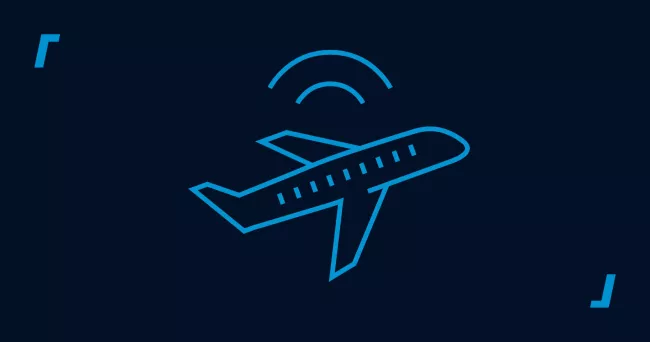
Digitalization, autonomy, increased connectivity, and data-driven decision making are drivers for change across many industries. The aviation sector is one of them. Manufacturers of aircraft, rotorcraft, urban air mobility (UAM), and uncrewed aerial vehicles (UAV) are faced with the demand for higher bandwidth and data transfer rates to accommodate the enormous amounts of data required in modern flight decks and avionics. At the same time, production, lifecycle, and operating costs are crucial factors in business, as is compliance with ever increasing safety, security, and certification requirements and standards.

Kurt Doppelbauer, Vice President of Strategic Sales and Business Development | Aviation at TTTech Aerospace, discussed these key market trends and how TTTech Aerospace’s technology and solutions support the market’s needs in a recent podcast with Avionics International. The main topics were:
Networking and computing platforms for avionics
TTTech Aerospace’s solutions cover a wide range of applications, from the UAM to the air transport market. They are used in safety-critical systems relevant for the flight of aircraft like flight controls, power systems, avionics, utility systems, and engine control systems.
Key aspects of the platform offering are level A certifiable components enabling high throughput – ten times more than is used right now in the industry. This allows manufacturers to integrate more systems, add new functionalities, and enable future extensions of the system.
TTTech Aerospace’s product portfolio is based on open international standards (IEEE, ARINC & SAE) and includes certifiable solutions up to DAL A with bandwidths of up to 1 Gbit/s that are ideally suited for a wide range of use cases. Apart from onboard platform solutions, customers also benefit from a highly integrated software development solution as well as qualified verification tools thus reducing the development time, reducing risk, and ensuring a faster time-to-market.
Do more with less – without compromising on safety and security
An effective way to reduce SWaP-C (size, weight, power, and cost) in onboard systems is the use of mixed-criticality networks that allow data with different criticality levels, e.g., safety-critical data related to vehicle management and non-critical data e.g. maintenance data, to use the same network. This can dramatically reduce the amount of wiring needed and allow for more functionality on less hardware.
Think about mobile phones: in the beginning, they were large, heavy, and offered only basic call functions, but as electronics became more powerful, phones became slimmer and lighter even as they offered increased functionalities and allowed hosting many different apps on one hardware and software platform. The same is true for modern aircraft.
However, there is also a safety and security aspect that must be considered, particularly given the ever-increasing industry certification requirements. This is why networks need to be deterministic. Deterministic means that a certain message sent by a computer on the aircraft is guaranteed to be sent and received at a pre-scheduled time and critical and non-critical messages cannot interfere with each other.
Autonomous applications will increase in aviation
An important aspect of modern flight decks is increased automation and more connectivity to support pilots in their decision making and ensure flying becomes even safer. The UAM market is also promising a new era of mobility with new, more autonomous operation models. All of these require enormous amounts of data and ease of upgradability, as well as safe and secure systems architectures. Deterministic networks can help to deal with these requirements while keeping down costs, enabling easier maintenance, and a faster time-to-market for new applications.
Find out more:

- Technical article: Exploring the requirements for building next-generation, safety-critical aerospace systems
- Check out how TTTech Aerospace’s mature TTEthernet network solutions enable Honeywell Anthem’s™ system architecture
- Read up on how our customers use our technology and solutions in our case studies and references
- Discover our solutions for the aviation sector